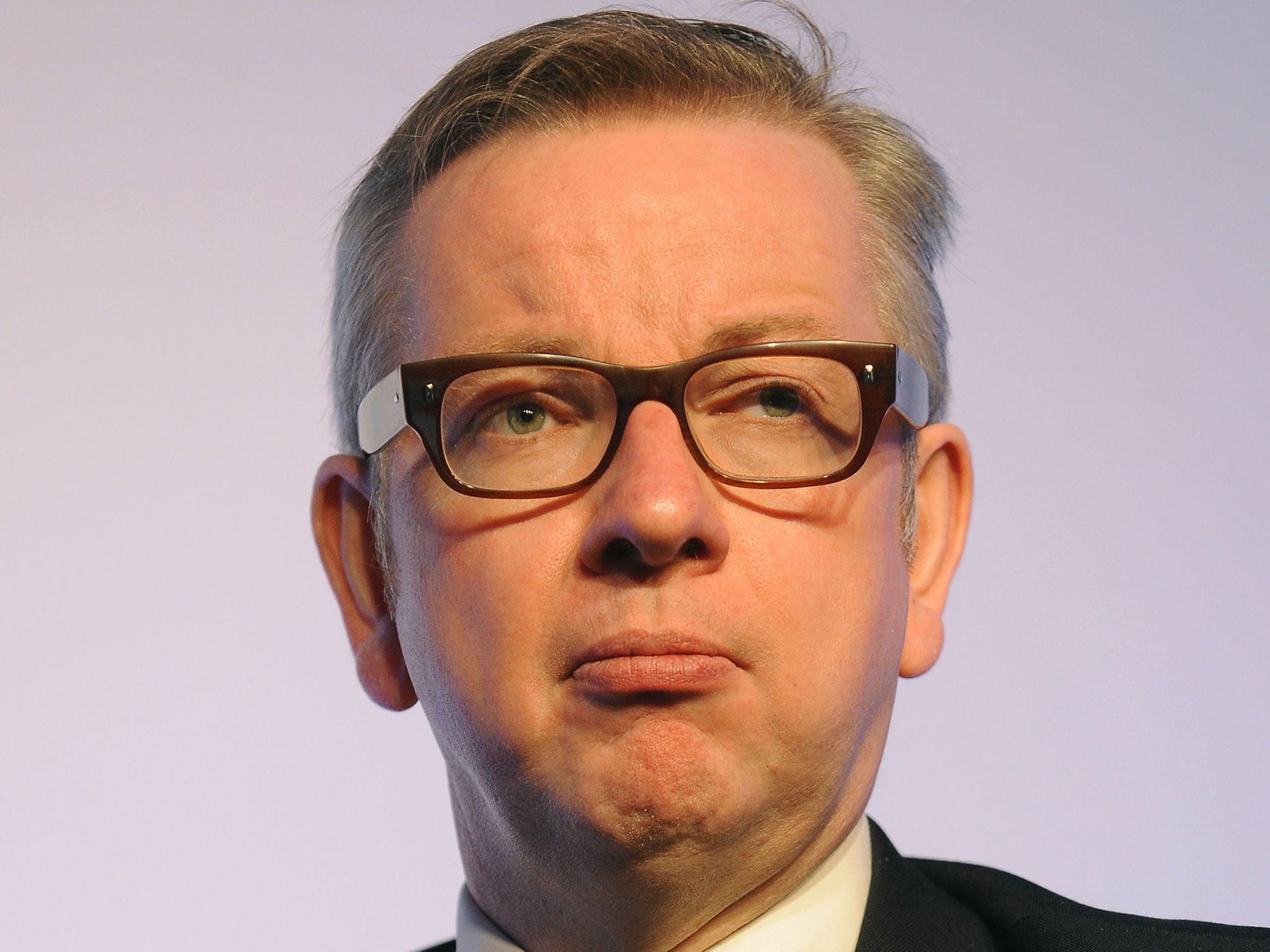Why Michael Gove hopes to reinvent existing human rights law
Home Affairs: The policy promise was inherited by Gove after the party’s election triumph

Your support helps us to tell the story
From reproductive rights to climate change to Big Tech, The Independent is on the ground when the story is developing. Whether it's investigating the financials of Elon Musk's pro-Trump PAC or producing our latest documentary, 'The A Word', which shines a light on the American women fighting for reproductive rights, we know how important it is to parse out the facts from the messaging.
At such a critical moment in US history, we need reporters on the ground. Your donation allows us to keep sending journalists to speak to both sides of the story.
The Independent is trusted by Americans across the entire political spectrum. And unlike many other quality news outlets, we choose not to lock Americans out of our reporting and analysis with paywalls. We believe quality journalism should be available to everyone, paid for by those who can afford it.
Your support makes all the difference.Michael Gove has been Justice Secretary for less than nine months, but has set about the job with the same passion for reform that characterised his spell running England’s schools.
Out have gone several schemes dreamt up by his predecessor Chris Grayling, including the farcical criminal courts charge and cuts to legal aid. In have come commitments to turn round failing jails, boost the rehabilitation of offenders and drag courts into the 21st century.
But a Justice Secretary in a hurry to get things done has run into particularly daunting problems in one crucial area of his portfolio: human rights legislation.
Denouncing the so-called human rights lobby by pointing to stories of terrorists and dangerous criminals securing perverse court victories is a sure-fire way of winning cheers at Tory conferences.
It prompted a populist promise to replace the Human Rights Act, which enshrined the European Convention of Human Rights in UK law, with a British Bill of Rights and assert the supremacy of domestic judges over the European Court of Human Rights in Strasbourg.
Work on scrapping the Act, which was blocked in the Coalition by the Liberal Democrats, was begun by Grayling, leading at one point to the suggestion – encouraged by the Home Secretary Theresa May – that Britain could leave the convention altogether.
The policy promise, reiterated in last year’s Tory manifesto, was inherited by Gove after the party’s election triumph. And then it got stuck in the ministerial in-tray, as a pledge to produce plans for cracking down on human rights excesses in the new Government’s first 100 days came and went.
Part of his problem is the huge complexity and sensitivity of the move. Critics complain it could undermine the constitutional arrangements underpinning devolution, even requiring the rewriting of the Good Friday Agreement, cause conflict with other European countries and damage the UK’s reputation for defending human rights.
This week, while Westminster’s attention was focused on Britain’s future with the EU (which has no connection to the Strasbourg court), some of Gove’s route through the maze began to emerge.
He told a parliamentary committee that his proposals would be published “soon”, and would strengthen protection from prosecution for British soldiers serving abroad and put added emphasis on the right to free speech.
These are relatively minor changes but, in more significant disclosures, the Justice Secretary said that everything in the European Convention would be contained in the Bill of Rights and subject to European law.
The announcement raises the question of why the Government is even bothering with complicated legislation if it is effectively replicating existing laws.
Gove explained it was important to tackle the public “perception” that human rights legislation is inspired by Europe rather than Britain. It was not put to him that much of that perception has been created by his fellow Tories and their press allies. The drive for repeal of the Act is, of course, partly political with ministers under pressure to deliver on a key manifesto promise, although there now appears to be a cross-over with David Cameron’s EU negotiations.
The Bill of Rights now looks likely to include provision for a constitutional court to shield the UK from EU legislation, enshrining the supremacy of domestic courts over Brussels politicians as well as Strasbourg judges.
This is still a live issue as Cameron attempts to sell his reform plans to EU leaders and the country. It is perhaps the most pertinent explanation of why Gove is playing a waiting game over human rights.
Join our commenting forum
Join thought-provoking conversations, follow other Independent readers and see their replies
Comments